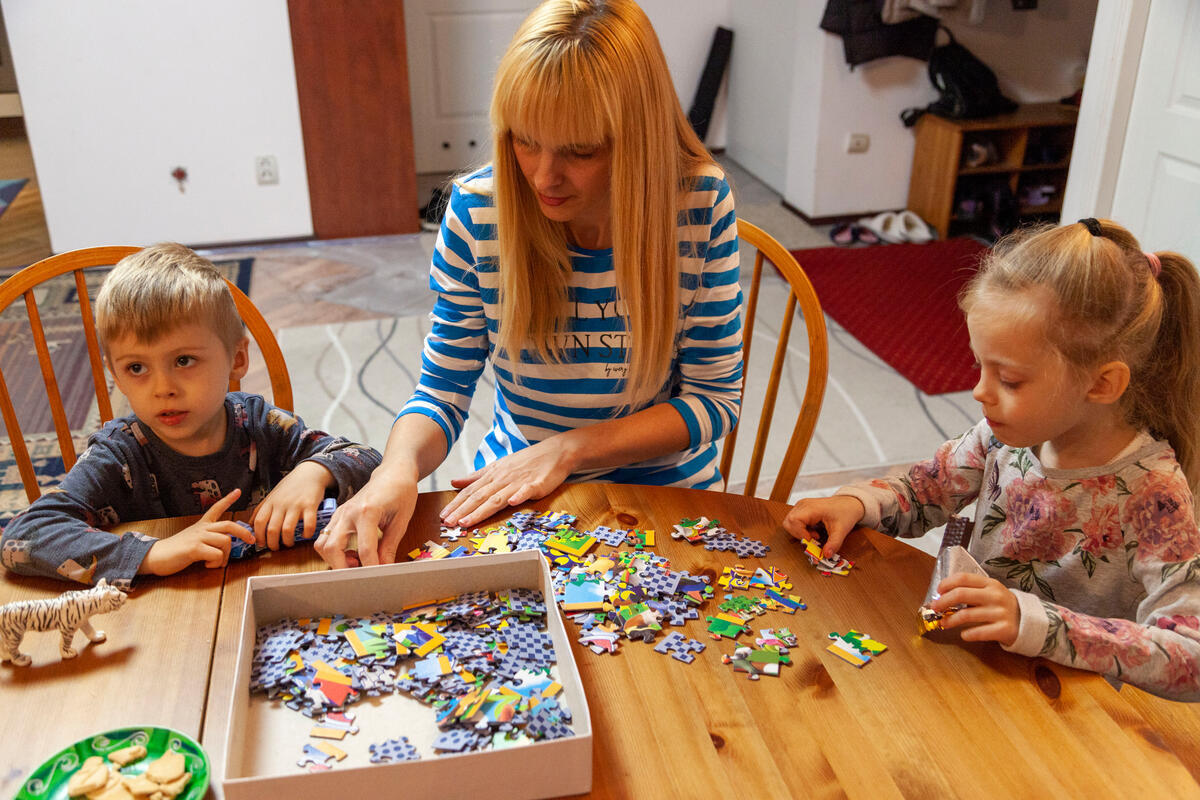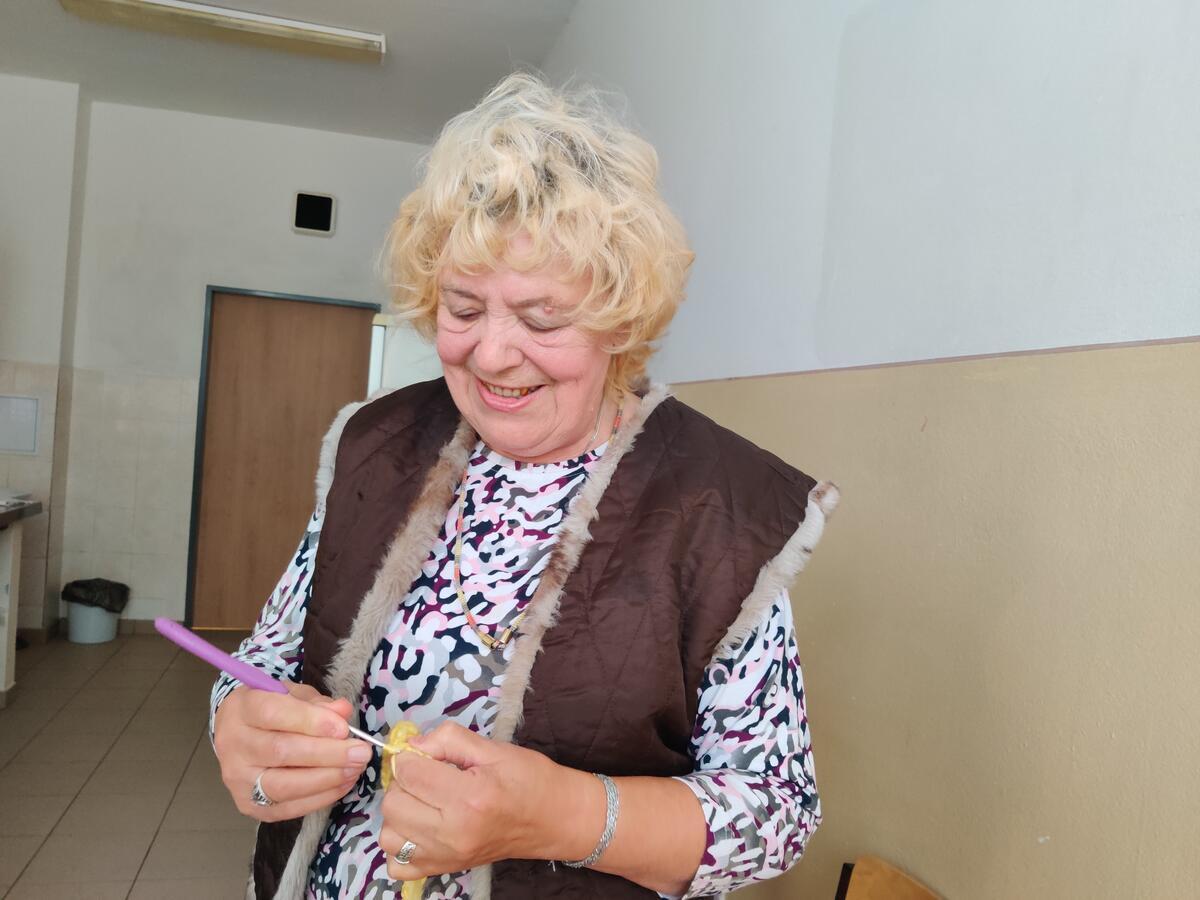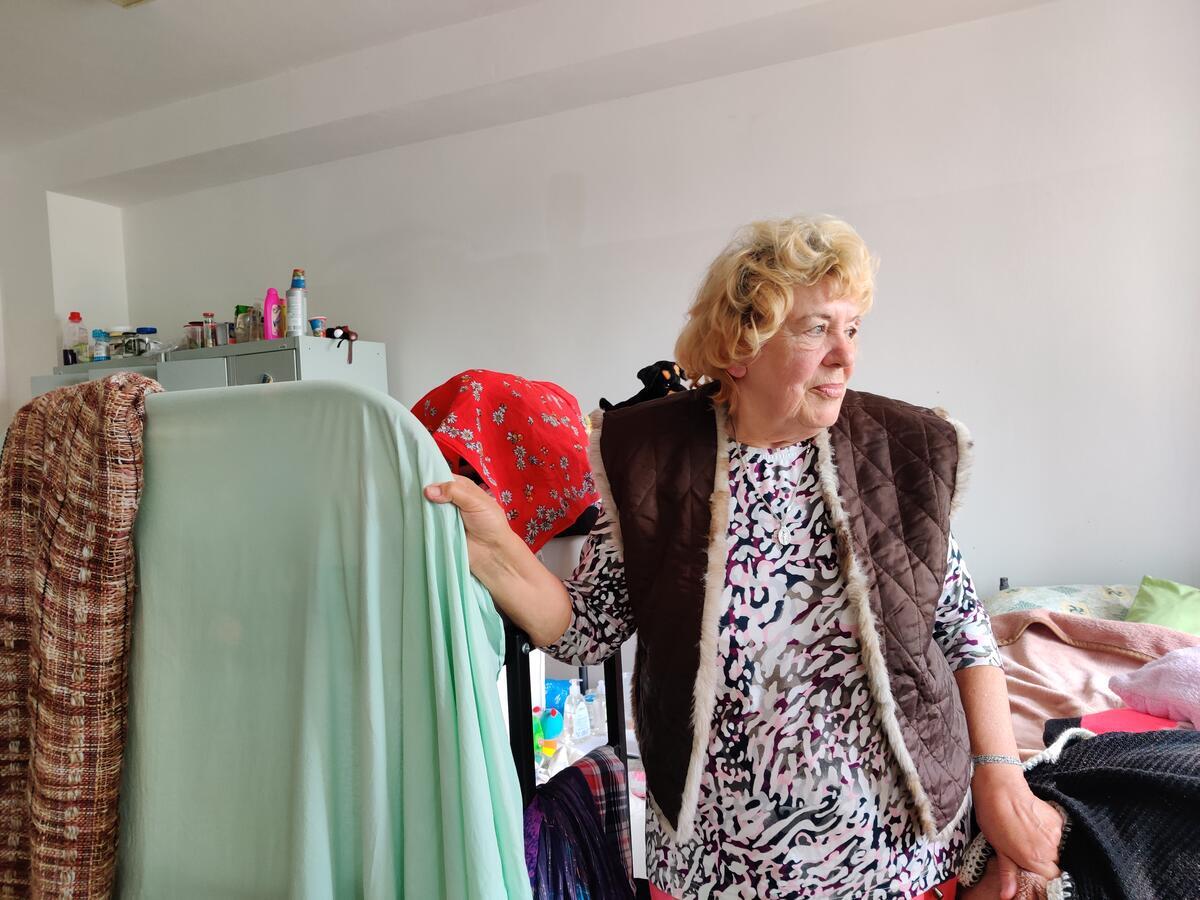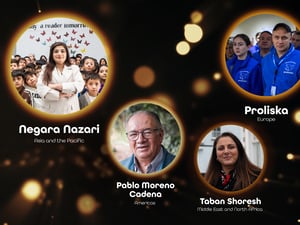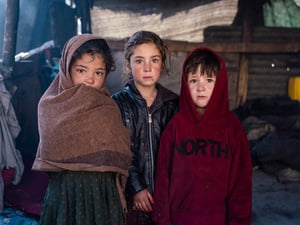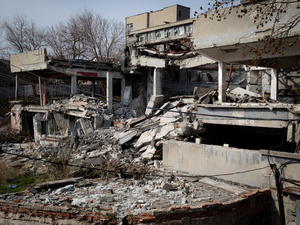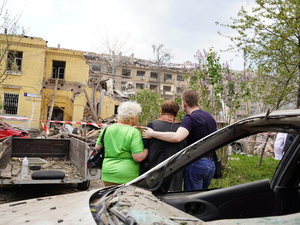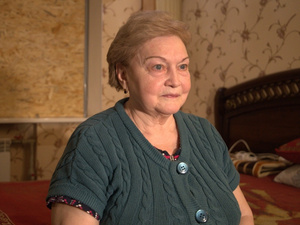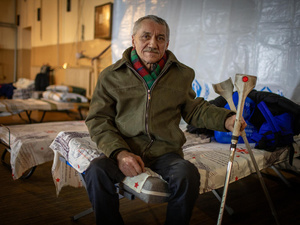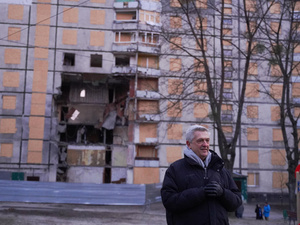Ukraine's refugees find long-term support in Europe's host countries
Ukraine's refugees find long-term support in Europe's host countries

Darya and her daughter Anastasiia fled to Poland from their home in Zaporizhzhia, eastern Ukraine, last March, together with Darya's son Artyom and mother Lyuba.
As the crisis triggered by Russia’s invasion of Ukraine transforms from an acute emergency characterised by sudden, massive displacement, into a long-term refugee situation, host countries in Europe are stepping up to meet the social and financial commitment of hosting millions of Ukrainian refugees.
In the immediate aftermath of the invasion, UNHCR, the UN Refugee Agency, and partners stepped in to fill the gap, to ensure refugees from Ukraine received the initial support they needed, including cash, shelter, and information. But as the war moves into its second year, host countries are now incorporating Ukrainian refugees into their existing national social support systems, ensuring sustainable assistance for the long term.
When Darya, a 36-year-old mother of two, arrived in Poland from the bombed city of Zaporizhzhia last March she was one of some 300,000 Ukrainian refugees who received cash assistance of up to 700 Polish zloty (US $157) per person each month from UNHCR, to meet their immediate needs for a period of three months. “I used it to cover our everyday expenses. I could buy things my children needed, like food, clothes, or toys. Everything they needed,” Darya says.
Today, the family lives in an apartment in the southern city of Krakow where Darya’s son Artyom, 4, and daughter Anastasiia, 6, attend a local government school, while Darya has found work at a car parts factory.
Despite missing their home – and their father who stayed behind in Ukraine – the children have settled into their new lives. Anastasiia even “speaks Polish very well already”, Darya says.
“I did the right thing coming to Poland, because here you can find work, make friends and acquaintances that will help you in all they can, and there are volunteers who will help you too,” says Darya. “It’s all good,” she says, but adds: “We hope we’ll be able to return home one day.”
Albina, a 77-year-old retired factory worker from the industrial city of Kramatorsk in eastern Ukraine, fled to Slovakia last March with her daughter Viktoria, son-in-law Viktor, and grandson Yevhen. They are some of the 100,000 who have been granted temporary protection by the government, in line with an EU-wide directive that gives those fleeing the war in Ukraine access to social services and the labour market without having to go through lengthy asylum procedures.
“We are very grateful to Slovakia for receiving us,” she says. “We have a place to live, we have food. What is most important is that here we live in peace and safety.”
Soon after arriving, Albina and her family were among 30,000 of the most vulnerable people in Slovakia who received cash assistance from UNHCR and other humanitarian organisations, as well as being provided emergency accommodation.
They have since been integrated into Slovakia’s national social support programme, and moved to Humenné, in the east of the country, where they have long-term stability and safety.
The transition from emergency to long-term assistance is an important step towards sustainable support for the 5 million Ukrainian refugees across Europe registered in national protection schemes. It also allows UNHCR to focus additional support on the most vulnerable refugees and to address specific needs such as preventing and responding to gender-based violence.
“In Poland, Slovakia and elsewhere across Europe, we have shifted from an emergency response to supporting governments to foster the inclusion of refugees in national systems, with a focus on helping the most vulnerable,” said Pascale Moreau, UNHCR Regional Director for Europe.
“UNHCR is partnering with national and local actors, including ministries, municipal authorities, NGOs and refugee-led organizations, to expand access to education, employment, housing, social welfare and medical or other assistance. Just to give a practical example, barriers to inclusion in labour markets can be addressed with language training or childcare support.”
Albina is still processing the upheaval of being forced to flee her home, but she tries to be optimistic. Slovakia is not home, but it will do for now, she says. “I love life, I want to live. The morning will come, a new day will come, everything will be good.”

